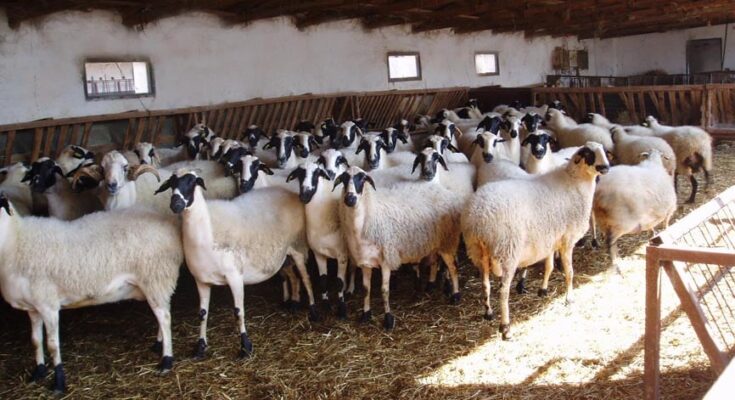Greece has recorded 22 cases of PPR sheep and goat plague as of Tuesday, a number that generates concern among stockbreeders, the Athens-Macedonian News Agency (AMNA) reports.
According to data from the Ministry of Agricultural Development and Foods, 20 of these cases were identified in Thessaly, one in Corinth, and one in Attica. A total of 10,768 ruminants have been slaughtered and another 2,000 are expected to follow soon.
Experts believe more cases of small-ruminants plague (Peste des Petits Ruminants, PPR) are likely to be found, according to a public television ERT report.
In an urgent meeting that took place in the Attica Region headquarters in light of the sheep and goat plague on Tuesday, Agricultural Development and Foods Secretary General Giorgos Stratakos, said that “at this point, we are at the stage of scientific investigation. We are waiting for the results from veterinarians working on the specific issue.”
“All animal moves are being traced, especially in Attica and Corinth specifically,” the government official said, adding that “specimen collection took place following specific animal flows and seeing from the initially infected units which animals have come in and which ones have left.”
The European Union protocol for every confirmed infection in a unit is to follow the trace of all animals or have a landfill burial followed by disinfection and quarantine of the unit.
Government measures for sheep and goat plague
The Minister of Agricultural Development and Foods, Kostas Tsiaras, decided to ban the movement of sheep and goats for breeding, fattening, and slaughter, throughout the Greek territory. The decision was taken for precautionary reasons with the aim of limiting the spread and eradicating the plague of small ruminants.
The government will be supporting breeders whose livestock was affected by the plague of small ruminants, Tsiaras said on Tuesday in an interview with public broadcaster ERT.
However, he said, in order to do so, the disease must first be treated and damage assessed before the corresponding financial aid will be provided.
Tsiaras underlined that “this battle is not over. We must be very serious, very responsible, very careful and of course, with the assistance and help of the breeders themselves, we must deal with the issue, in the most direct way, in the shortest possible time and with the greatest speed.”
Extra measures in Attica
Pertinent authorities in the Attica region are on alert after the confirmation of the first case of sheep and goat plague in a livestock unit in Aspropyrgos.
By decision of Attica Region Governor, Nikos Hardalias—following a consultation with the Minister of Rural Development and Foods and the Minister of the Interior—strict health protocols have been implemented in the region. Meanwhile, the veterinary services of the Attica region conduct continuous and meticulous tests.
The measures focus on the immediate detection of any primary cases, the immediate killing within 24 hours of animals, and immediate tests conducted by multiple mobile units with targeted samples in Attica.
At the same time, the protection zone is set at 3 kilometers (1.85 miles) and the surveillance zone at 10 kilometers (6.2 miles) while it is prohibited to move animals for breeding or slaughter. The transport of animals to summer pastures is also forbidden throughout Attica.



